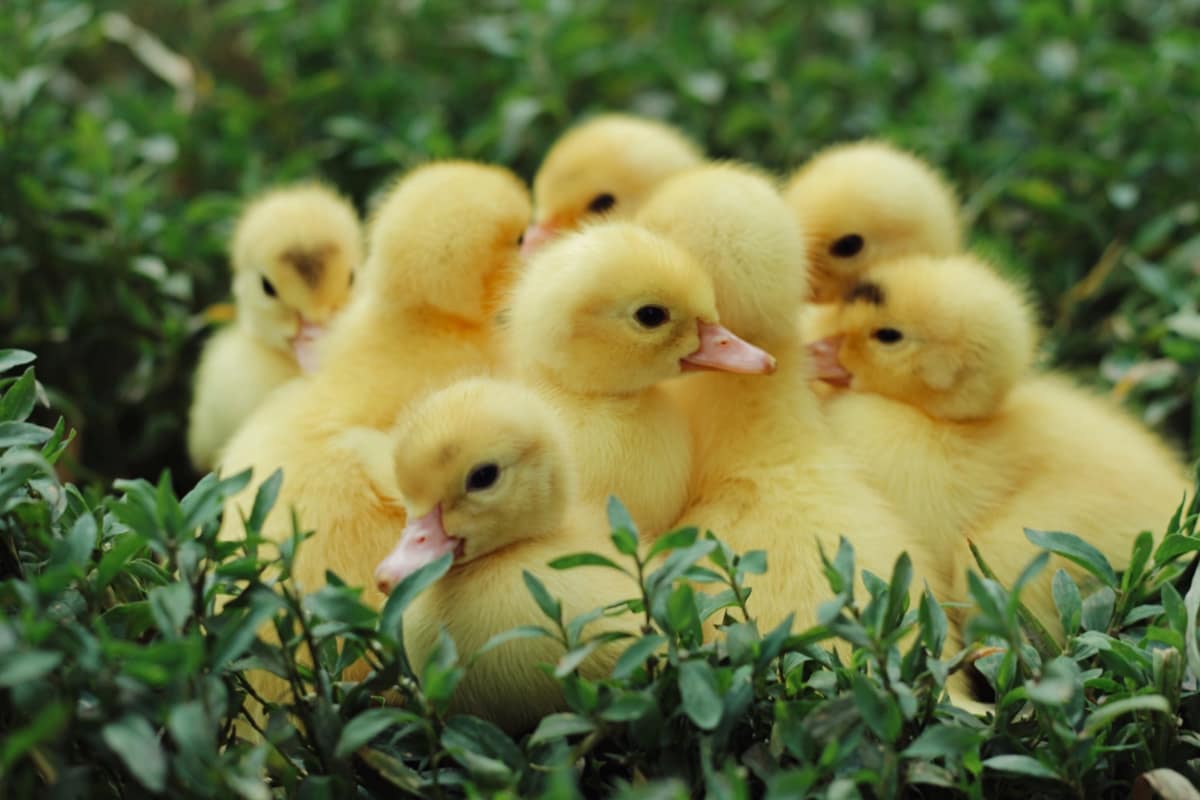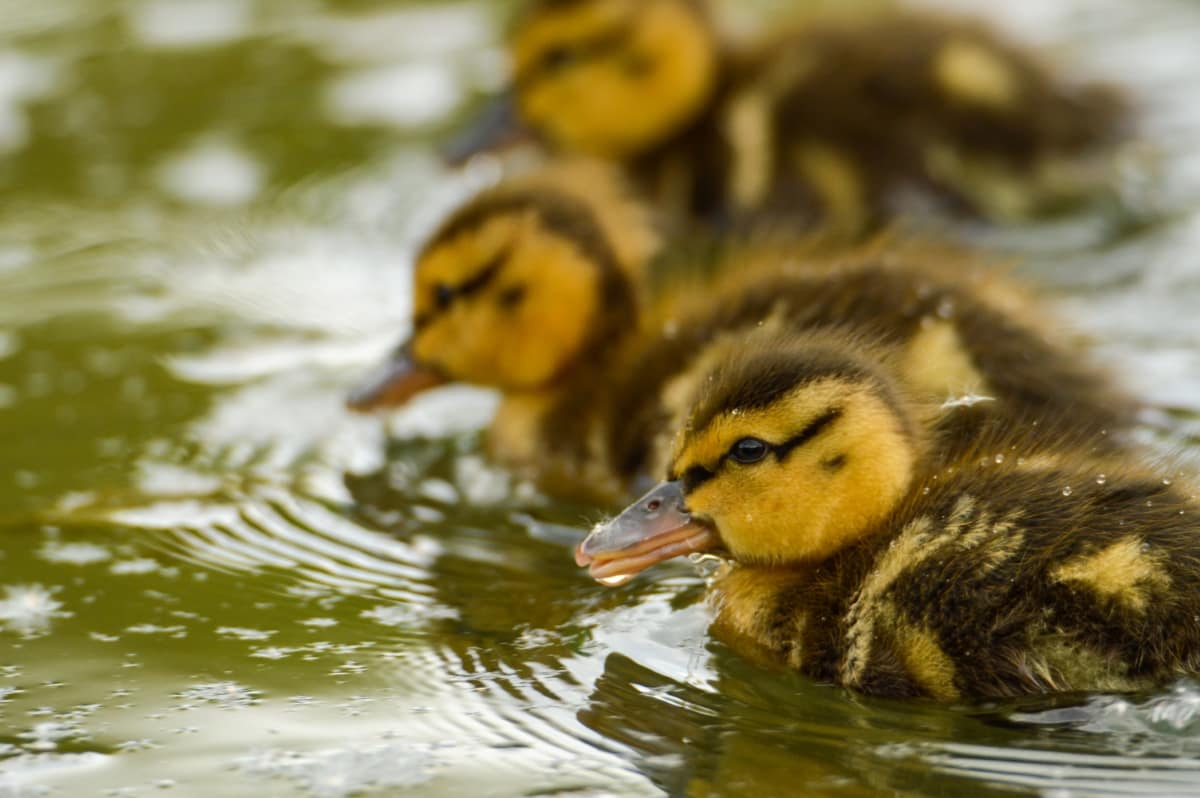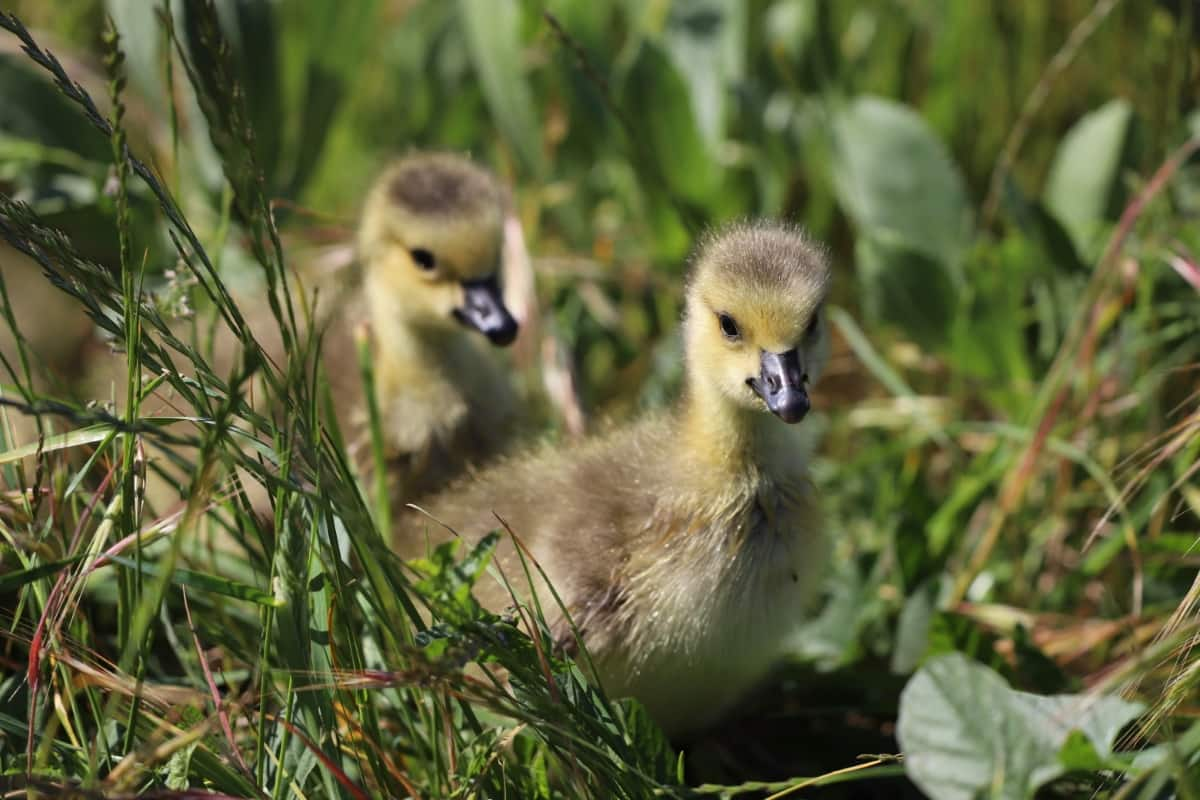Raising baby ducks for beginners is a rewarding activity that requires commitment, preparation, and a genuine love for animals. As novices embark on rearing these adorable creatures, it is essential to understand each phase of their life, from hatching to adulthood. This comprehensive guide provides a week-by-week roadmap for raising ducklings indoors or in your backyard. The focus will be on mallard ducklings, although many of these practices will apply to other duck species.

Guide to Raising Ducklings
Best Practices for Raising Ducklings in a Backyard Setting
Raising ducks in your backyard has become a popular practice among poultry enthusiasts. The process differs from raising chickens, but ducklings require a few specific care practices. Your backyard can serve as a haven for your ducklings, providing a natural environment to help them grow and develop healthily. Backyard-raised ducks can benefit from more space and a less stressful environment than their commercially raised counterparts. However, your backyard must be properly equipped to protect your ducks from predators and the elements.
A safe and secure duckling brooder is essential for this process. This space will provide your duckling’s warmth, shelter, and security during their early weeks. Your brooder should be spacious enough for ducklings to move around, and it should always be kept clean and dry. As your ducklings grow and develop, they should be gradually introduced to the outside world while ensuring they are always safe from potential dangers.
Tips for Successful Duckling Rearing: From Hatching to Adulthood
Raising ducklings is a task that involves careful monitoring and care, especially in the early stages of their life. During their first week, the ducklings are very vulnerable. Hence, maintaining a warm and dry brooder is crucial to keep them healthy and comfortable. In the case of mallard ducklings, they grow quickly, and their care regimen will change as they age.
For 2-week-old ducklings, they become more active, and their nutritional needs change. They start to develop their first set of feathers, which means they can spend more time outside, under supervision. Ducklings, week by week, continue to grow rapidly, and they will require more space to roam, plenty of water for both drinking and preening and a balanced diet to ensure proper development.
Raising Ducklings Naturally: A Sustainable Approach
A sustainable approach to raising ducklings involves incorporating practices that benefit the environment, the ducks, and the owner. This involves choosing organic, non-GMO feeds, allowing the ducks to forage naturally when old enough, and using a deep-litter method in the duck house for natural composting. In addition, ducks are excellent natural pest controllers. As they roam your backyard, they can help control the population of slugs, snails, and other pests, benefiting the overall ecosystem of your backyard.
Healthy Diet and Nutrition for Growing Ducklings: A Guide
Feeding your ducklings a balanced diet is crucial for their growth and health. Ducklings need a diet rich in proteins, vitamins, and minerals. A starter feed specifically designed for ducklings is ideal for the first few weeks. Their diet can include grains, vegetables, and bugs as they age. It is important to ensure their food is not medicated, as this can harm ducklings.
In case you missed it: Feed Management in Ducks: Feeding Plan, Feed Formula, and Feed Requirement

Creating a Safe and Comfortable Environment for Ducklings
To ensure your ducklings are comfortable, provide them with a cozy home that is warm, dry, and clean. Keep the brooder temperature at around 90 degrees Fahrenheit during the first week, and then decrease it by 5 degrees each week until they have all their feathers.
Preventing Common Health Issues in Ducklings: A Proactive Approach
Ducklings are generally hearty creatures but susceptible to several health issues. Pasting up, spraddled legs, angel wings, botulism, and worms are common health issues you should monitor and prevent. Regularly checking your ducklings and promptly treating any health issues is important. Moreover, keeping their living area clean, providing a balanced diet, and ensuring access to clean water can significantly minimize the risk of these health problems.
Raising Ducklings for Eggs: Maximizing Productivity
If you’re raising ducklings with the intent of getting eggs, there are certain measures you can take to maximize productivity. First and foremost, choosing a breed known for its egg-laying abilities, like the Khaki Campbell or Indian Runner, is crucial. A balanced diet, ensuring the ducks have enough space, and maintaining a regular light-dark cycle can promote egg-laying.
Socializing Ducklings: Fostering Strong Bonds and Behavior Development
Socialization plays a critical role in the behavior development of ducklings. Spending time with your ducklings can help them get used to your presence and voice. It also helps them develop a bond with you, making handling them easier as they grow older. While ducklings naturally socialize with each other, human interaction is also beneficial.
Duckling Brooding Essentials: Warmth, Shelter, and Security
Regarding brooding ducklings, warmth, shelter, and security are vital. As mentioned earlier, the brooder should be maintained at around 90 degrees Fahrenheit during the first week, lowering gradually each week. It should also be large enough to give the ducklings space to move around and should be kept clean and dry at all times. A secure lid is also necessary to prevent the ducklings from escaping or predators from getting in.
Training and Handling Techniques for Well-Behaved Ducklings
Handling your ducklings gently and regularly can help them get accustomed to you. This is important because it will make necessary future interventions easier, such as health checks. Train your ducklings by gently picking them up, holding them close to your body, and talking to them calmly. The more time you spend with them, the more they trust you, which benefits their overall well-being.
Understanding Ducklings’ Natural Behavior and Establishing Routine
An essential step in raising ducklings successfully is understanding their natural behavior and establishing a consistent routine. Ducks are creatures of habit and thrive on routine. Regular feeding times, bathing schedules, and bedtime rituals can help create a sense of security and comfort for your ducklings.
Observing their behaviors, such as preening, dabbling, and foraging, can also provide insights into their well-being. Changes in behavior can often be the first sign of health issues. Additionally, providing an environment that mimics their natural habitat as closely as possible, including access to water for bathing and opportunities for foraging, can support their natural behaviors and contribute to their overall health and happiness.
In case you missed it: Frequently Asked Questions About Duck Farming

Conclusion
Raising ducklings is an activity that requires patience, care, and a commitment to understanding their needs. By following these guidelines, you can raise your ducklings in a manner that ensures their health and happiness, and you may find yourself rewarded with the delightful company of these engaging animals.
- Feed Your Flock for Less: Top 10 Tips to Save on Chicken Feed
- Ultimate Guide to Ossabaw Island Hog: Breeding, Raising, Diet, and Care
- Hatching Answers: The Top 10 Reasons Your Chickens Aren’t Laying Eggs
- Eggs and Economics: Breaking Down the Cost of Raising Backyard Chickens
- Defend Your Greens: Proven Methods to Keep Iguanas Out of Your Garden
- Ultimate Guide to Cinnamon Queen Chicken: A Comprehensive Guide for Beginners
- Ultimate Guide to California Tan Chicken: Breeding, Raising, Diet, Egg-Production and Care
- Ultimate Guide to Marsh Daisy Chicken: Breeding, Raising, Diet, and Care
- 10 Types of Chicken Farming Businesses You Can Start for Profits